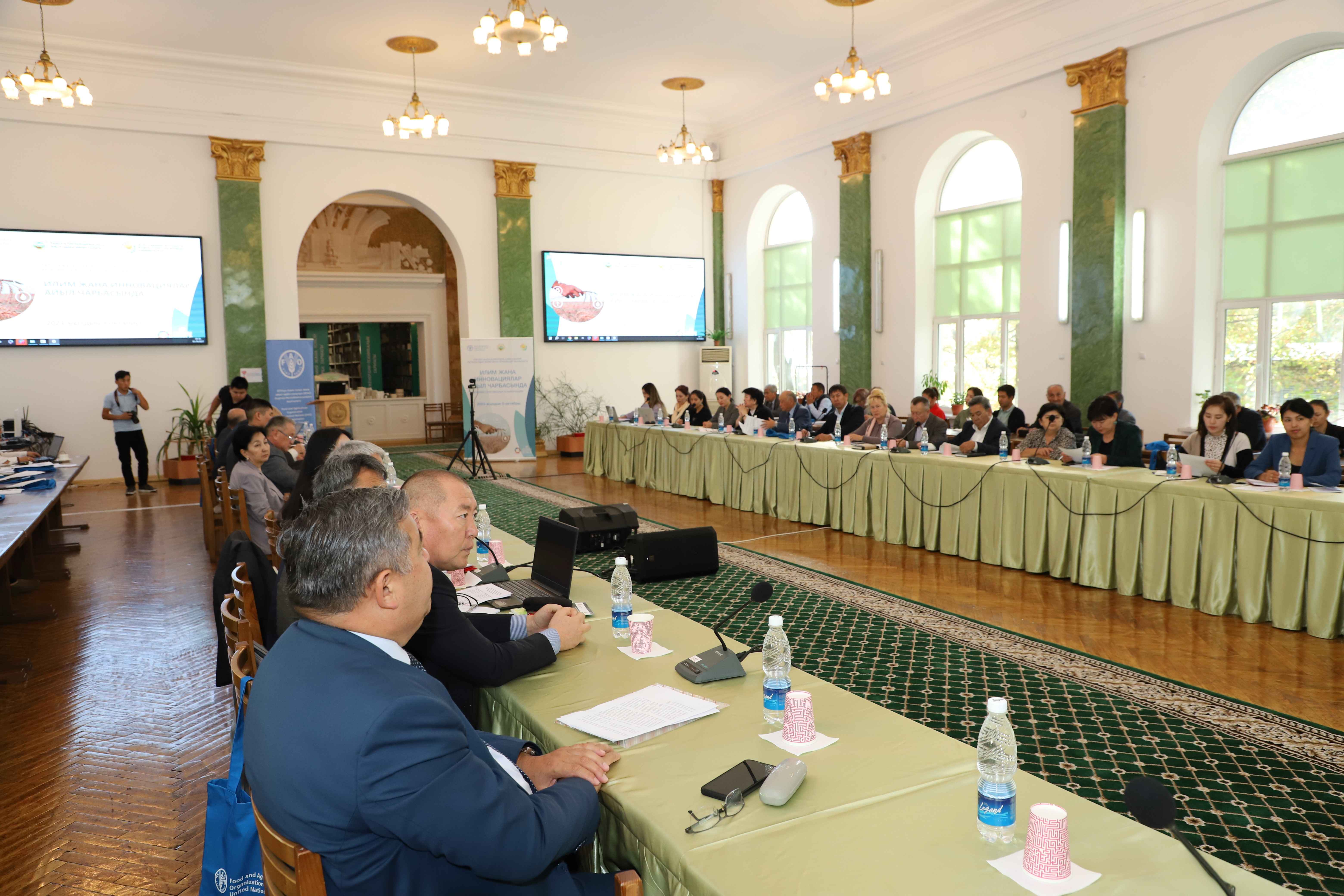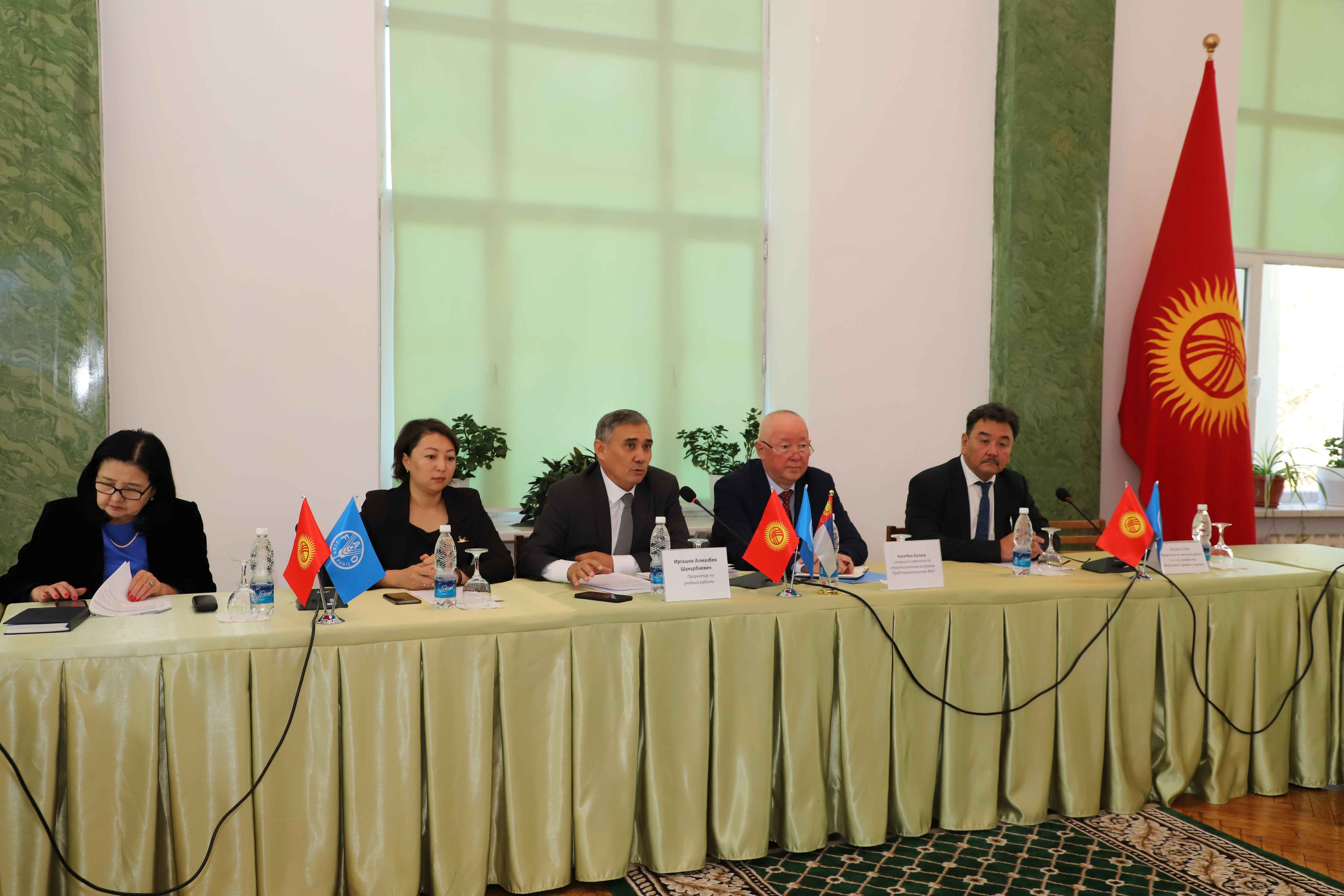Bishkek conference highlights innovations in modern agricultural technologies

©Freepik
Kyrgyzstan, Bishkek – Experts gathered on 3 October in Bishkek for a conference on the role of science and innovation in agriculture in Kyrgyzstan.
The event, held at the Kyrgyz National Agrarian University named after K. I. Skryabin, was part of the Food and Agriculture Organization of the United Nations (FAO) Regional Science and Innovation Week for Europe and Central Asia, which provided a platform for governments, research institutions, civil society organizations and the private sector to share experiences related to the integration of science, research and innovation and discuss policy interface mechanisms in accelerating the transformation to more sustainable, inclusive and resilient agrifood systems.

Uranbek Shergaziev, Vice-Rector for Scientific Work of the Kyrgyz National Agrarian University, opened the conference. In his speech, Shergaziev outlined the main issues of innovative development of agriculture in Kyrgyzstan.
“Today, all advanced agricultural countries are on the path of developing the latest modern technologies in agriculture, and they are winning in the competition – primarily through innovation, through the active introduction of effective knowledge-intensive technologies,” he said. “Thanks to this, there is a constant increase in productivity and an increase in the culture of agricultural production.”
Kuvatbek Bapaev, FAO International Technical Adviser in Kyrgyzstan, noted that the best representatives of the agricultural industry were gathered at the university. In his speech, he analysed the development of the agricultural and industrial complex of Kyrgyzstan, stressing that the conference was intended to bring together experts and representatives of various organizations to exchange experience and knowledge.
“It is obvious that the agriculture of Kyrgyzstan has already become a part of the Central Asian agro-industrial complex, agro-industrial market, agricultural market,” Bapaev said. “Fluctuations in this market force domestic producers to be more mobile, more determined and more attentive to the achievements of modern science and technology. But, as the producers themselves say, to work in these markets, they continue to need support, including expert support.”
Almazbek Irgashev, Vice-Rector for Educational Work of the Kyrgyz National Agrarian University, spoke about the training of highly qualified personnel – work that is becoming an acute need in key sectors.
“Today, the village needs a worker with the most modern knowledge,” Irgashev said. “Competent professionals are the key to effective work, additional profits and the stability of the organization. Professionals are especially important in the context of improving technology in modern industries. It should be borne in mind that the demand of most employers is aimed at getting a ready, highly qualified, experienced specialist. This poses new challenges for universities.”
Elvira Mambetova, Chief Scientific Specialist of the Ministry of Agriculture of the Kyrgyz Republic, noted that one of the key elements of agricultural development is the use of innovation.

“We have to promote the integration of research and innovation into the practices of farmers and agricultural enterprises,” she said. “This may include the introduction of modern agricultural techniques, the development of new varieties of plants, improved animal genetics, and the development of digital technologies for agriculture.”
Presentations at the conference were made by Vitaly Shablovsky, Head of the Laboratory of the Kyrgyz Research Institute of Irrigation, and Abdimalik Egemberdiev, General Director of the National Association of Pasture Users “Kyrgyz Zhaiyty.” They talked about the results of projects to introduce automated systems to remotely meter irrigation water and create alternative water sources for remote mountain pastures – projects implemented in Kyrgyzstan with support from FAO.
Conference participants also considered issues related to the innovative development of agriculture in Kyrgyzstan and discussed the problems of scientific intensive technologies and the active implementation of scientific achievements in agriculture and reclamation, crop production, plant protection and livestock production.
